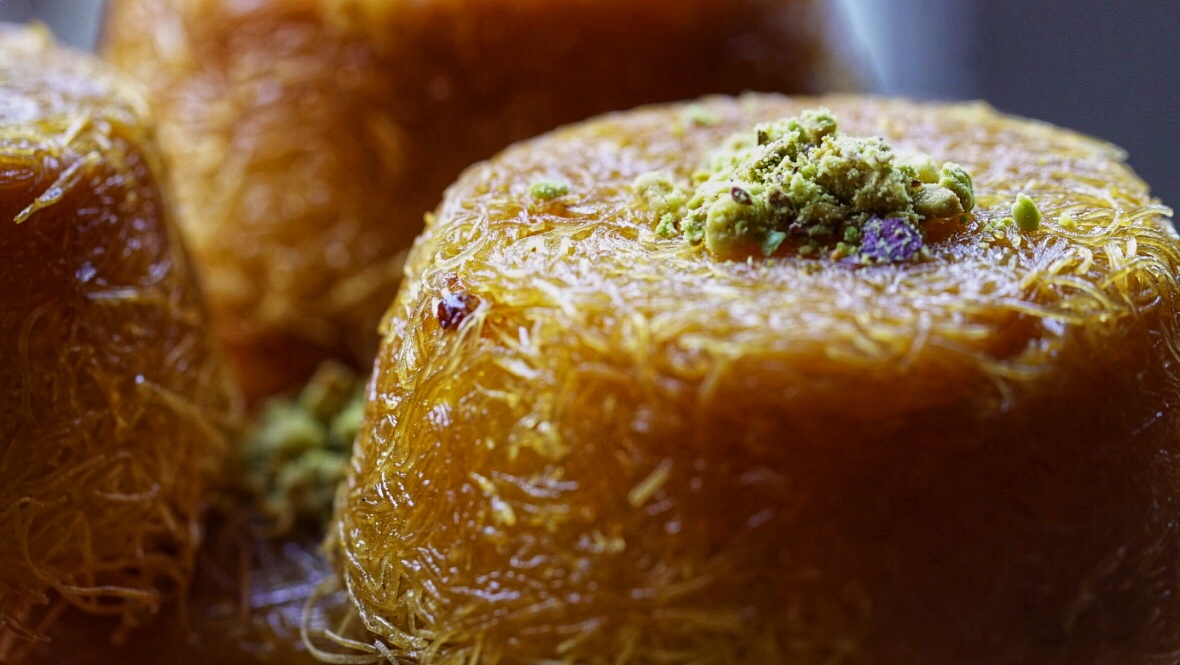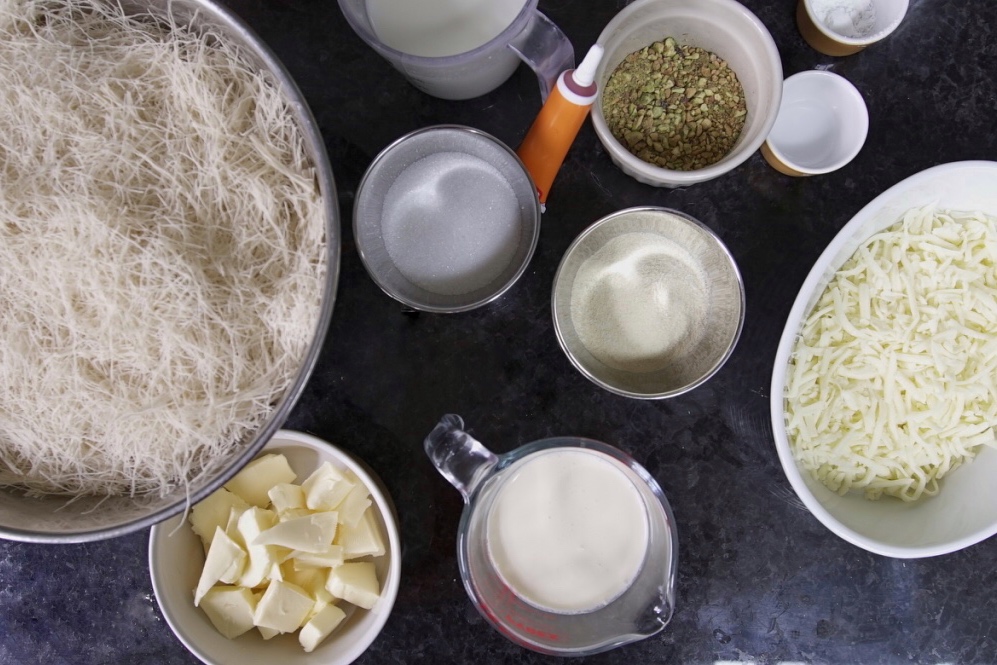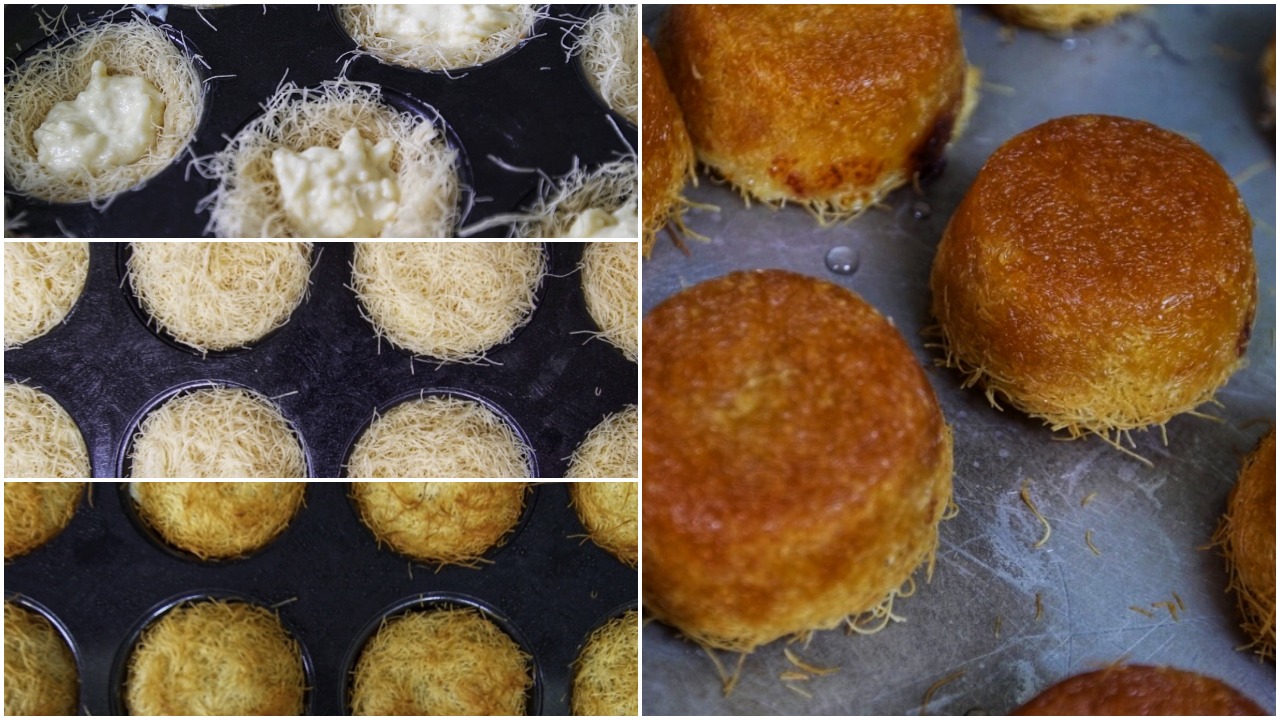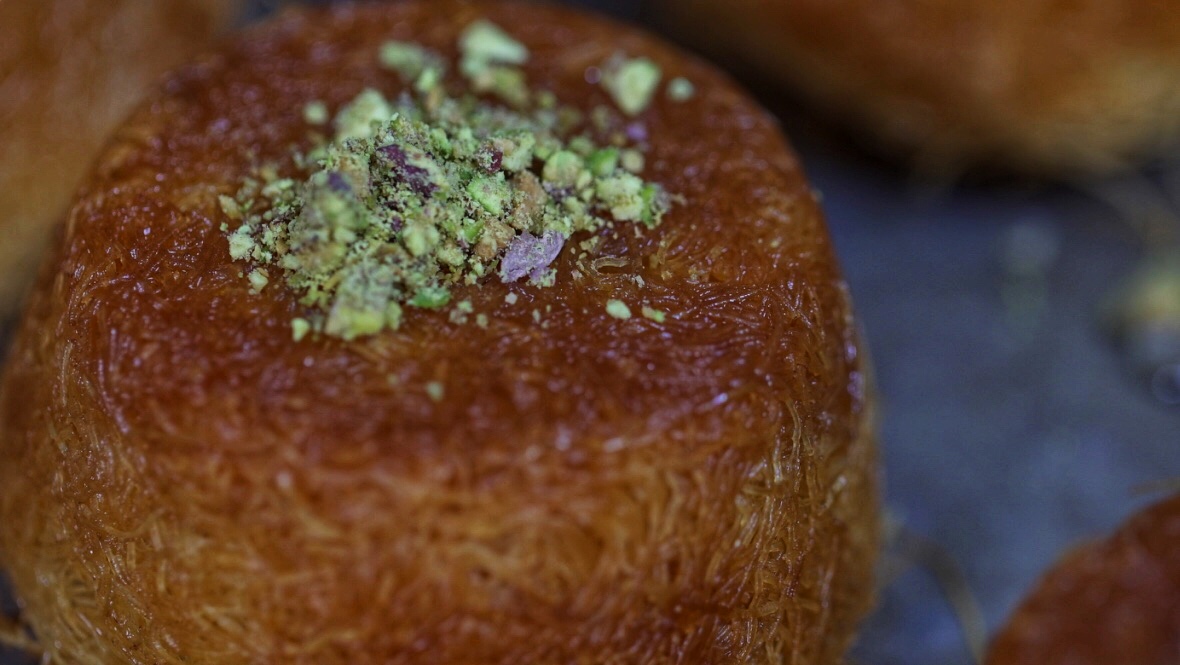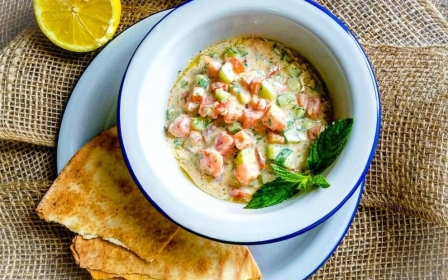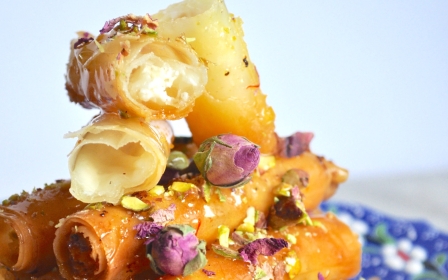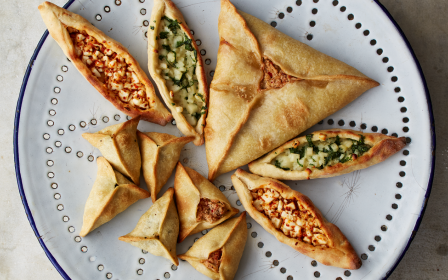How to make kunafa cups
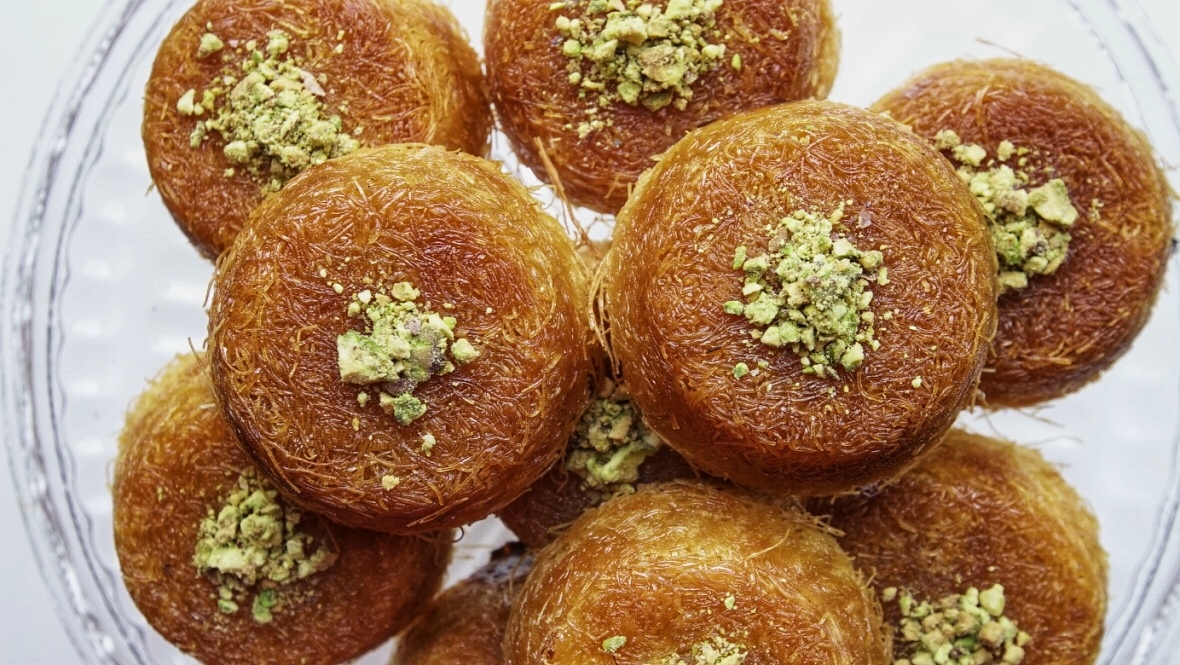
Kunafa is one of the hallmark desserts of the Middle East, with as many variations on its filling (think cheese, cream, nuts, pastry cream, chocolate, fruit, clotted cream) as on its spelling (it is variously called kanafeh, kanafe, knafeh, knafe, kunafah - you get the idea).
This syrup-soaked cheese pastry really comes into its own during Ramadan, when it is a frequent guest at the table during iftar, the meal which breaks the hours of fasting.
For Christianity and other religions, certain treats are reserved for certain holy days - no-one, for example, would eat Christmas pudding at Easter or hot cross buns at Christmas.
Islam is more relaxed. Puddings and pastries like kunafa can be consumed at any time of the day and throughout the year. If it's sweet, syrupy and made by your mum (or someone else's) then we want it - and now!
Kunafa dates back at least half a millennium to Nablus, Damascus and Cairo, with nearly every origin story or legend tracing it to Ramadan.
New MEE newsletter: Jerusalem Dispatch
Sign up to get the latest insights and analysis on Israel-Palestine, alongside Turkey Unpacked and other MEE newsletters
Traditionally, it is made with akkawi or nabulsi cheeses, but these can sometimes be hard to locate outside the Middle East. They also need to be soaked and de-salted in water overnight.
Our recipe is an easy kunafa, presented as individual cups and made with mozzarella cheese and semolina pudding for that perfect cheesy-creamy balance.
Feast and enjoy with a shout of "sahtain!" (to your health!)
Recipe
Serves: 12 cups
Preparation and cooking time: 1½ hours
1. Ingredients
Sugar syrup
- 1 cup (225g) sugar
- ½ cup (125ml) water
- ½ tsp lemon juice
- ½ tsp vanilla bean paste
Kunafa crust
- 320g (11oz) of kunafa filo pastry, shredded (try Middle Eastern or Turkish supermarkets)
- 5 tbsps butter (also extra to grease the muffin tray)
- ½ tsp orange food colouring (optional - add more if you want)
Filling
- ¾ cup (180ml) milk
- ½ cup (115ml) heavy whipping cream
- 2 tbsp granulated sugar
- 1½ tbsp semolina
- ½ tsp cornflour
- ½ tsp water
- 110g (4oz) mozzarella, grated
2. Method
Sugar syrup
- In a medium saucepan, combine the sugar, water and lemon juice. Set on a stovetop over a medium high heat. Stir just to combine, then let it be (if the sugar doesn't dissolve, you can stir a couple more times but as soon as it starts to boil, stop stirring).
- Bring to a boil, then reduce the heat to low and let it simmer for 10 minutes, at the most. Once its consistency has thickened, remove from the stove immediately.
- Once off the heat, stir in the vanilla bean paste and set aside to cool.
Semolina pudding
- In a small saucepan, combine the milk, cream, sugar and semolina.
- Mix the cornflour and water separately until it dissolves, then add this to the mixture in the saucepan.
- Place over a medium-high heat and cook, whisking constantly. Bring to a boil, and continue cooking for about three more minutes or until the mixture thickens into a custard-like consistency (add more cornflour if needed).
- Remove from the heat and set aside to cool slightly while you prepare the kunafa.
Kunafa crust
- In a large bowl, shred the kunafa pastry into 1in (2.5 cm) long pieces (kitchen scissors may help).
- Melt the butter and add it over the shredded pastry.
- Toss with your hands until all the strands are evenly coated and glisten. This really important – and it will be worth it…
- Set aside, ready for assembly.
Assembling
- Preheat the oven to 200°C (400°F).
- Using a pastry brush, spread some of the extra butter on to a muffin tray. Make sure to coat the sides of the holes of the muffin tray as well.
- Put a few drops of the orange food colouring into the bowl of melted butter. Spread this orange butter on to the base, and up the side, of each muffin hole.
- Add the base layer of kunafa pastry into each muffin hole. Pack it in tightly using something small like a pestle or measuring cup. Make sure to bring the kunafa up to the sides of the hole too, so that you create a well for your filling.
- Add the mozzarella to the cooled semolina pudding and stir.
- Add about 1 tbsp of the cheese-semolina mix to each hole, before covering with more kunafa pastry.
- Press down lightly so that it is sealed. Be gentle as you don't want the mixture to spill out.
Baking
- Place in the oven for about 20-30 mins, until the tops look golden brown.
- Remove from the oven and immediately pour on ¾ of the syrup and decorate with some chopped pistachios.
- Leave to cool ever so slightly before carefully flipping over the muffin tray. The individual kunafa cups should easily come out.
- Serve the kunafa cups warm with the extra syrup for those who want to top up their cup
Enjoy with some cardamom tea. You can store any leftover kunafa cups in the fridge, then reheat in the oven or microwave another day.
Sura and Nuha are two sisters of Iraqi origin who want to create, showcase and champion the Middle Eastern food they grew up with. They have started Babylon Bakehouse, a London-based business, where they plan to showcase their dishes and provide catering services. You can follow them at @babylonbakehouse on Instagram or www.babylonbakehouse.com
This article is available in French on Middle East Eye French edition.
Middle East Eye delivers independent and unrivalled coverage and analysis of the Middle East, North Africa and beyond. To learn more about republishing this content and the associated fees, please fill out this form. More about MEE can be found here.


